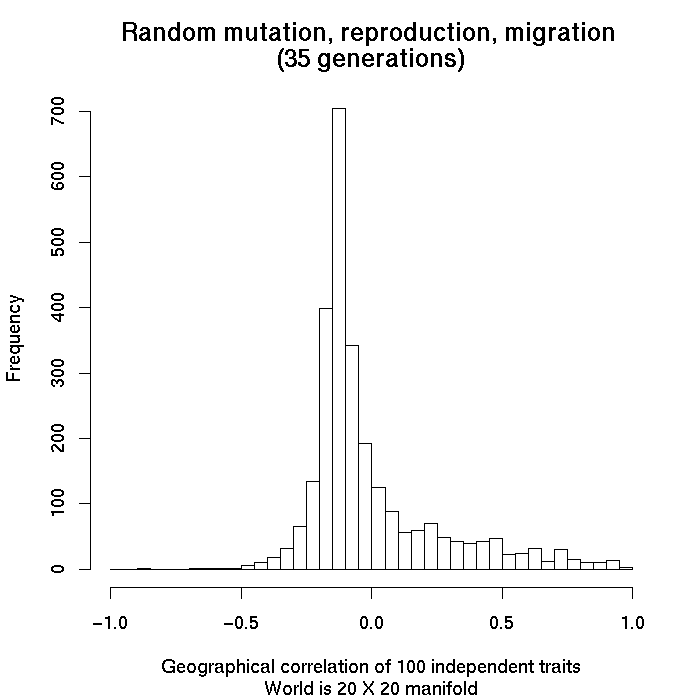Environmental effects on language change
Language Log 2024-07-11
Frazz for 7/8/2024 and 7/9/2024:
There's a long history of research (and a longer history of speculation) about the linguistic effects of temperature, altitude, genes, and other language-external factors. I dimly recall a lecturer (I think seriously?) suggesting that Grimm's Law was caused by the discovery of beer, although I haven't been able to find any traces of this in the literature, even as a joke.
A good review of the (non-alcoholic) topic can be found in Ladd, Roberts, and Dediu, "Correlational studies in typological and historical linguistics", Annual Review of Linguistics 2015.
In response to an earlier paper about geographical correlations between genes and tones, I wrote:
Just to underline one aspect of this discussion, I did a trivial little simulation, in which individual mutations were placed at random on a 20×20 grid, and then died, reproduced and migrated at random for 35 generations. (The grid was configured as a manifold, so that if you migrate off of one side, you come back in on the opposite one.) I ran 100 traits independently, and then looked at the geographical correlations among their population frequencies:
The point was just that many of the correlations in that simulation are "statistically significant", but (by construction) the causal factors are not influences of the (imaginary) geography or the intrinsic biology of the (imaginary) people, but just the effects of assuming that languages change locally and the groups of people who speak them migrate and interact.
Which doesn't mean that geographical and biological differences don't have linguistic effects, just that (even strong) correlations are not enough to establish them.


